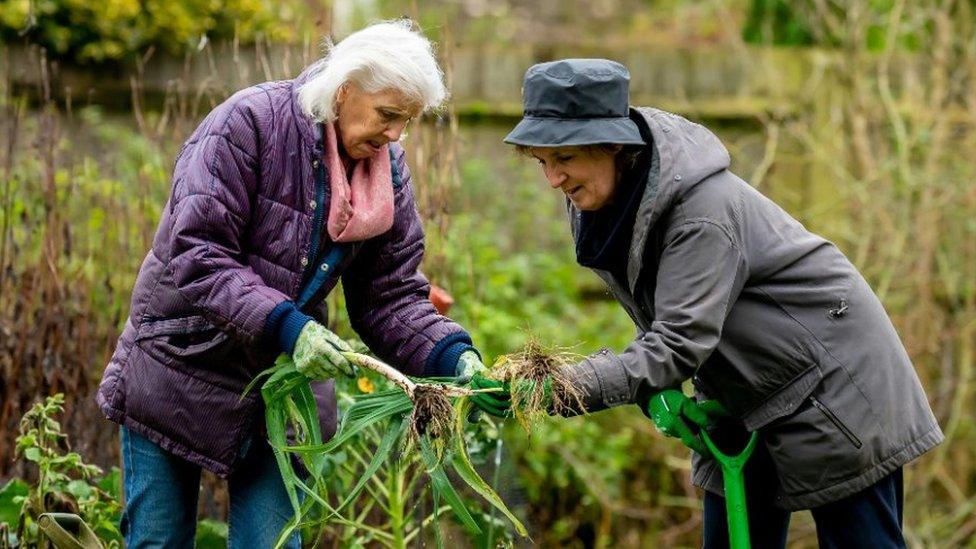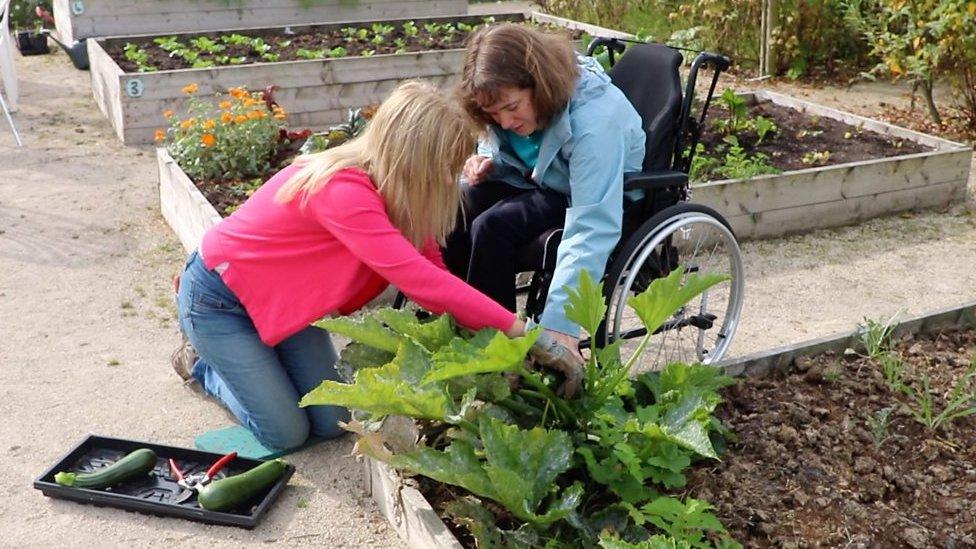Lancashire volunteer groups at 'crisis point' over NHS referrals
- Published

Social prescribing involves referring patients to non-clinical services - such as gardening - to support their health and wellbeing
Volunteer organisations say they have been pushed to "crisis point" by the number of people being referred to them for support by the NHS.
Groups across Lancashire and South Cumbria told a care partnership meeting they had come under pressure due to a rapid increase in "social prescribing".
Patients are referred to non-clinical services - such as gardening or art - to support their health and wellbeing.
Volunteers are calling for a more structured way to organise funding.
NHS England has been contacted for a response.
Social prescribing has become widespread - and there are now 3,400 social prescribing "link workers, external" across England.
They are the people who connect individuals with local organisations, which could include dance sessions, befriending initiatives, or debt support agencies, that might be able to help alleviate their problems.
However, a meeting of Lancashire and South Cumbria Integrated Care Partnership heard that the massive NHS investment in link workers in recent years had not been matched with the cash needed to expand the capacity of the groups to which those new staff were now referring so many patients.
The partnership - which is made up of local authorities, NHS organisations and voluntary, community, faith and social enterprise (VCFSE) representatives themselves - has now agreed to become an early adopter of an initiative to create a "shared investment fund".
The aim is to ensure a more structured and stable approach to funding organisations involved in putting social prescribing into practice.
'Bottleneck'
The meeting heard that more than a quarter of people who attended appointments at their GP surgery do not have a medical need - while many of those that do come with a medical complaint also have some other social or practical support requirement.
Social prescribing really took off after its inclusion in the NHS Long Term Plan back in 2019.
More than 2.5 million people have been in contact with a social prescribing link worker nationwide.
Dr Victoria Ellarby, programme director for system reform at Lancashire and South Cumbria Integrated Care Board, told the partnership meeting that a "bottleneck" had been created by the burgeoning of social prescribing, but welcomed the proposed shared investment fund as a way of showing a commitment to getting people the most appropriate support for their needs.
"I think we've all recognised there has been a history of over-medicalising many of these problems, she said.
"The stats show that people present to the NHS because they don't really know where to go - and [at the NHS] the door's open [and] the lights are on.
"But actually its wider determinants of health and a focus on prevention that this [plan] really puts the spotlight on."
Councillor Damian Talbot, cabinet member for public health, prevention and wellbeing at Blackburn with Darwen Council, said the growth in social prescribing had coincided with a spike in the number of people with "more and more complex [and] significant mental health needs".

Why not follow BBC Lancashire on Facebook, external, X, external and Instagram, external? You can also send story ideas to northwest.newsonline@bbc.co.uk, external
Related topics
- Published23 September 2021

- Published28 January 2019
